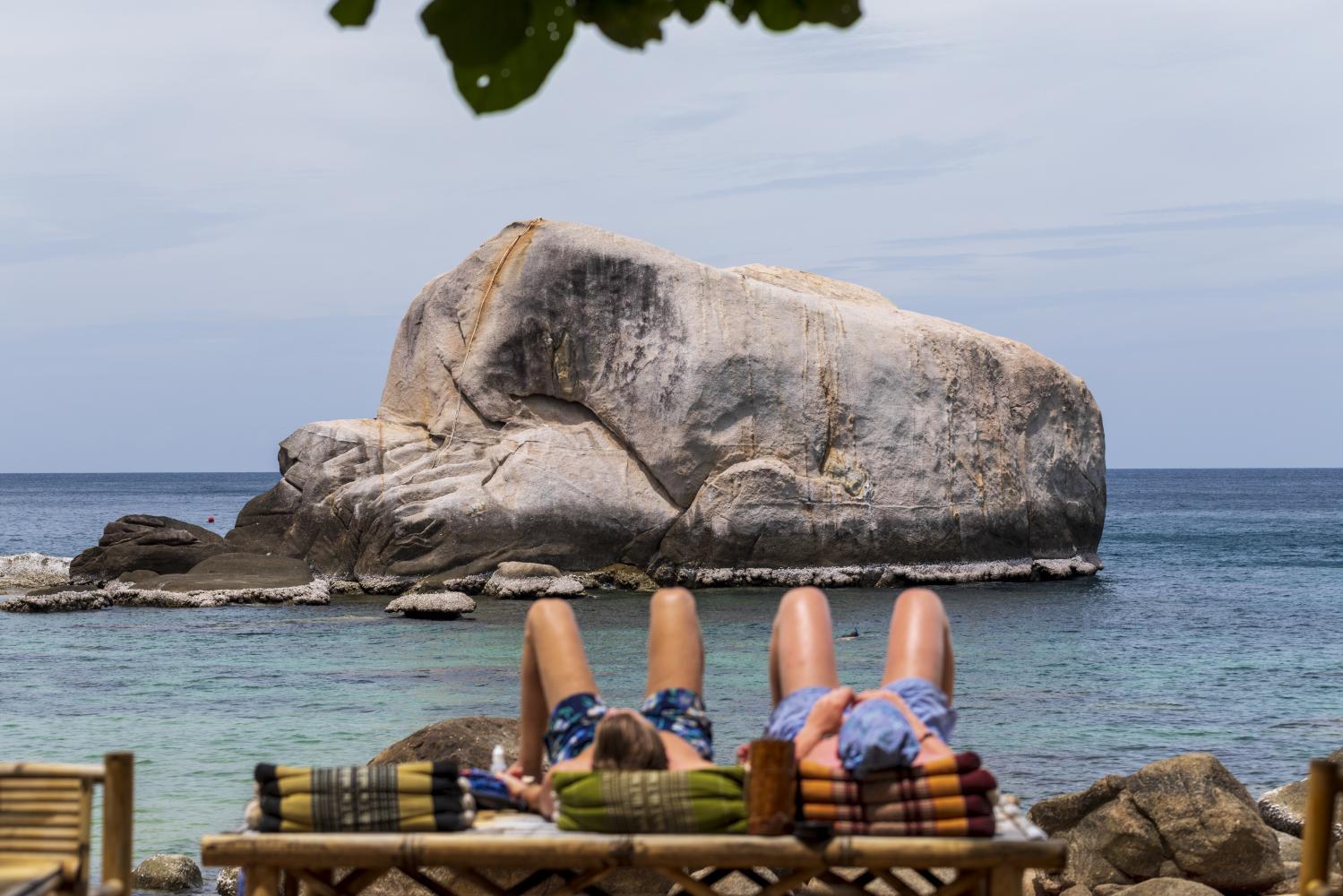
Thailand has long been a popular destination among tourists and long-stay travellers, including expatriates and retirees.
With more multinational companies establishing offices and manufacturing centres in Thailand, the country is attracting foreign workers.
More Thai locations, including industrial cities, coastal areas and mountain towns, are building expat communities, providing upgraded facilities for remote workers and retired foreigners.
In the first quarter of 2023, the number of expatriates tallied 156,596, of which more than half live in Bangkok, according to Colliers Thailand and the Employment Department.
The top three nationalities were Japanese, Chinese and Indian in 2022, while reports indicate more Chinese nationals are buying condo units in Thailand.
The Tourism Authority of Thailand (TAT) is dedicating 2024 to expats by offering benefits to this segment.
With the tourism trend shifting towards longer stays after the pandemic, operators are looking for opportunities to tap this segment.
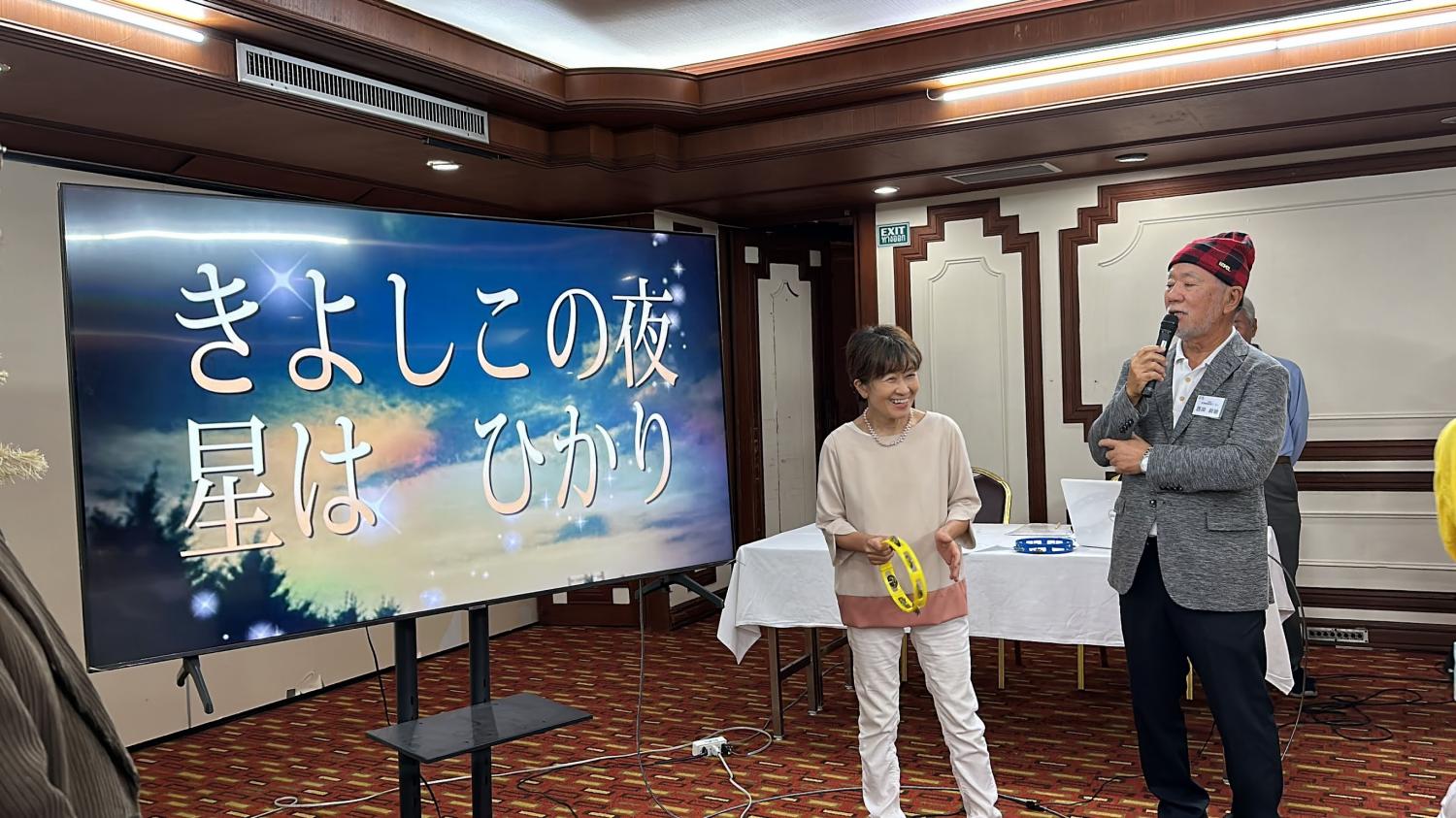
Activities held by Chiang Mai Longstay Life Club, comprising Japanese retirees in Chiang Mai.
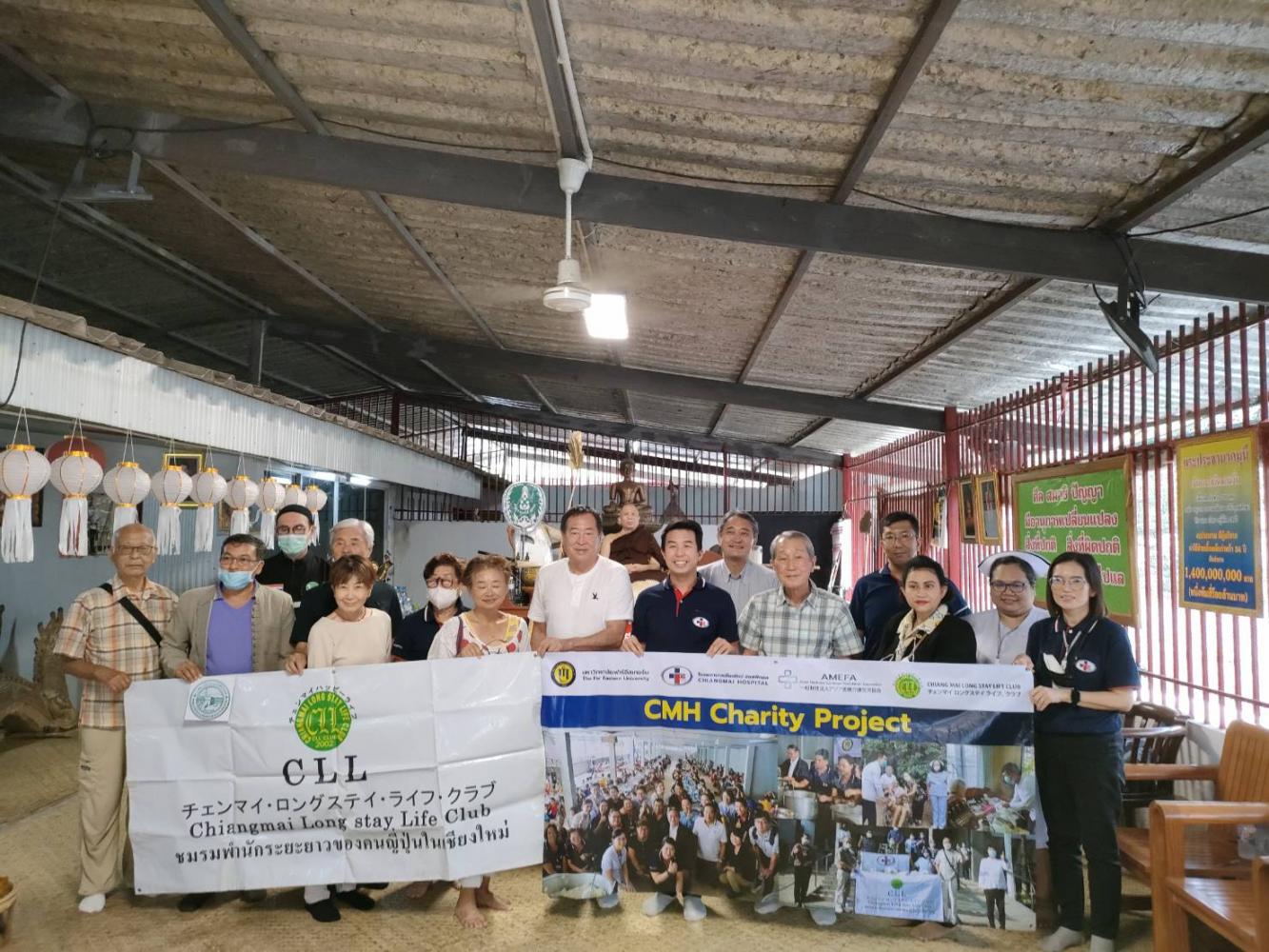
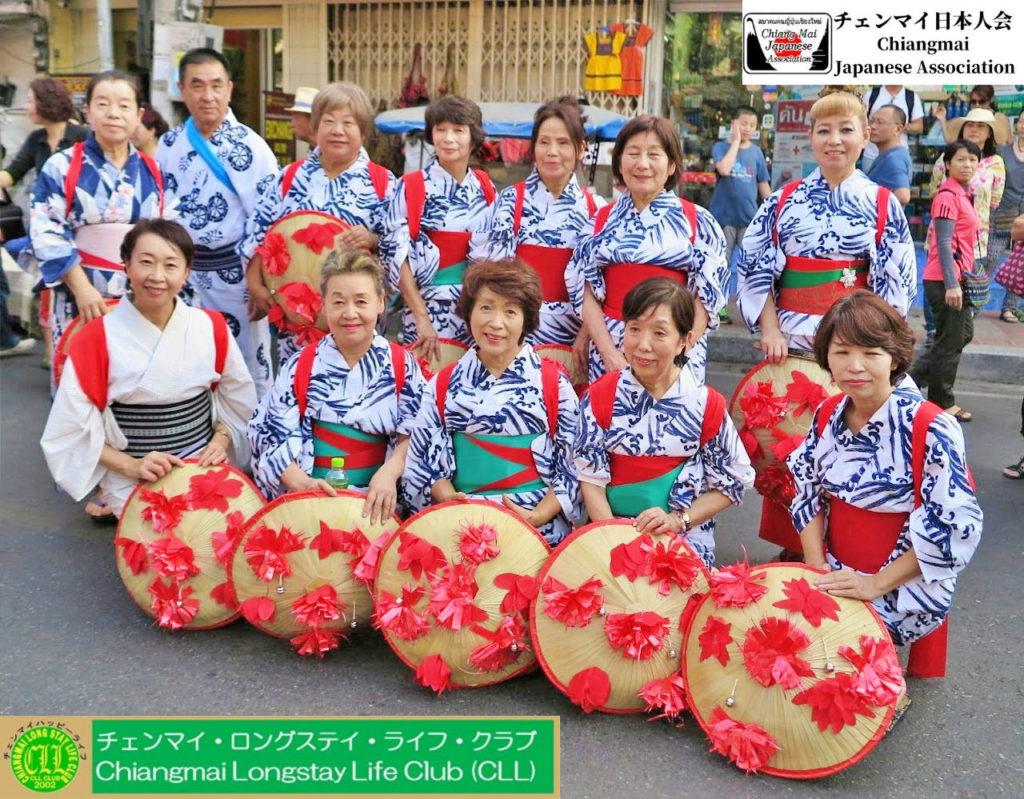
WORKATION HUB
Thapanee Kiatphaibool, the TAT governor, said the agency is preparing privileges for expats including perks they have requested for many years, such as lowering entrance fees to national parks and other attractions to the same rate as Thais.
Ms Thapanee said the year of expats celebration will include promotional campaigns to showcase workations -- places that combine work and vacation -- across Thailand, to stress the unique work environment here.
Three resort islands in Surat Thani -- Koh Samui, Koh Phangan and Koh Tao -- serve as hotspots for digital nomads.
"Long-stay visitors and remote workers are attracted to the beautiful nature and local culture, as well as various types of accommodation at different price ranges," said Ratchaporn Poolsawadee, president of the Tourism Association of Koh Samui.
He said the three islands are home to an estimated 10,000-15,000 digital nomads on tourist visas and non-immigrant visas.
"Digital nomads are high-quality visitors who help inject cash into the economy of the islands as they normally spend more than locals and help fill the market during the low season," said Mr Ratchaporn.
Major markets are Russians and Europeans, such as the French, he said.
The war in Ukraine caused many Russians to head to Thailand, staying longer than normal as they can work remotely. This segment includes freelancers and digital entrepreneurs, said Mr Ratchaporn.
According to the Real Estate Information Center (REIC), Russians ranked second for condo transfers nationwide during the first half of 2023, with 702 units worth 2.55 billion baht.
In terms of facilities, the number of residences, cafés and co-working spaces are growing rapidly to accommodate surging demand from long-stay and non-immigrant visa holders, he said.
However, Mr Ratchaporn admitted there is a problem with people overstaying their visas in Samui as some foreign criminals are based on the island.
This situation prompted the authorities to intensify security measures, he said.
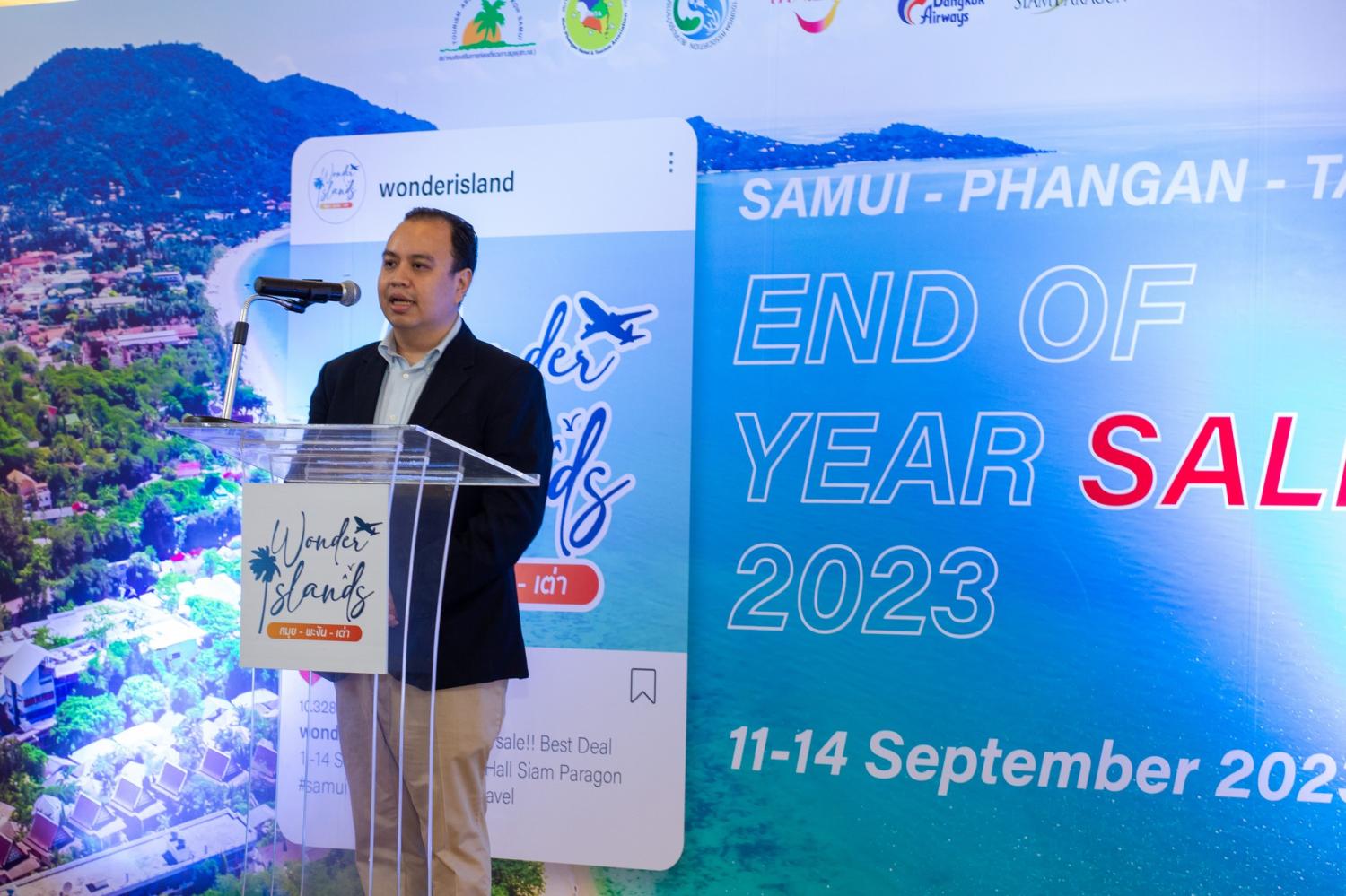
Mr Ratchaporn says digital nomads help inject cash into the economy.
JAPANESE SLOWDOWN
"Thailand has long been a favourite investment destination for Japanese companies that produce auto parts, computers and food products because of strong facilities built for these manufacturers," said Hitoshi Sato, managing director of TDC International, a real estate agent.
According to the Board of Investment (BoI), Japanese applicants secured the most projects of any foreign nationality in 2022, totalling 293 projects worth 50.7 billion baht.
The BoI reported Japanese companies still have a certain level of investment demand in Thailand.
However, since the pandemic the employment trend has shifted as many companies now hire Thai nationals for managerial or similar positions, instead of relocating executives from Japan, aiming to cut costs amid slow economic growth and a weak yen, he said.
"If the weak yen lasts for another 5-10 years, investment will be reduced, leading to a smaller Japanese expat and retiree community in Thailand," said Mr Sato.
Meanwhile, the number of Chinese expats has surged following the increase in investment by Chinese firms in Thailand, notably by electric vehicle (EV) producers and technology companies, he said.
Chinese companies are the leading investors in industrial estates in Rayong province, which is part of the Eastern Economic Corridor (EEC).
A study by the REIC found Chinese were the top market for condo transfers, with a total of 3,448 units worth 16.9 billion baht in the first half of 2023.
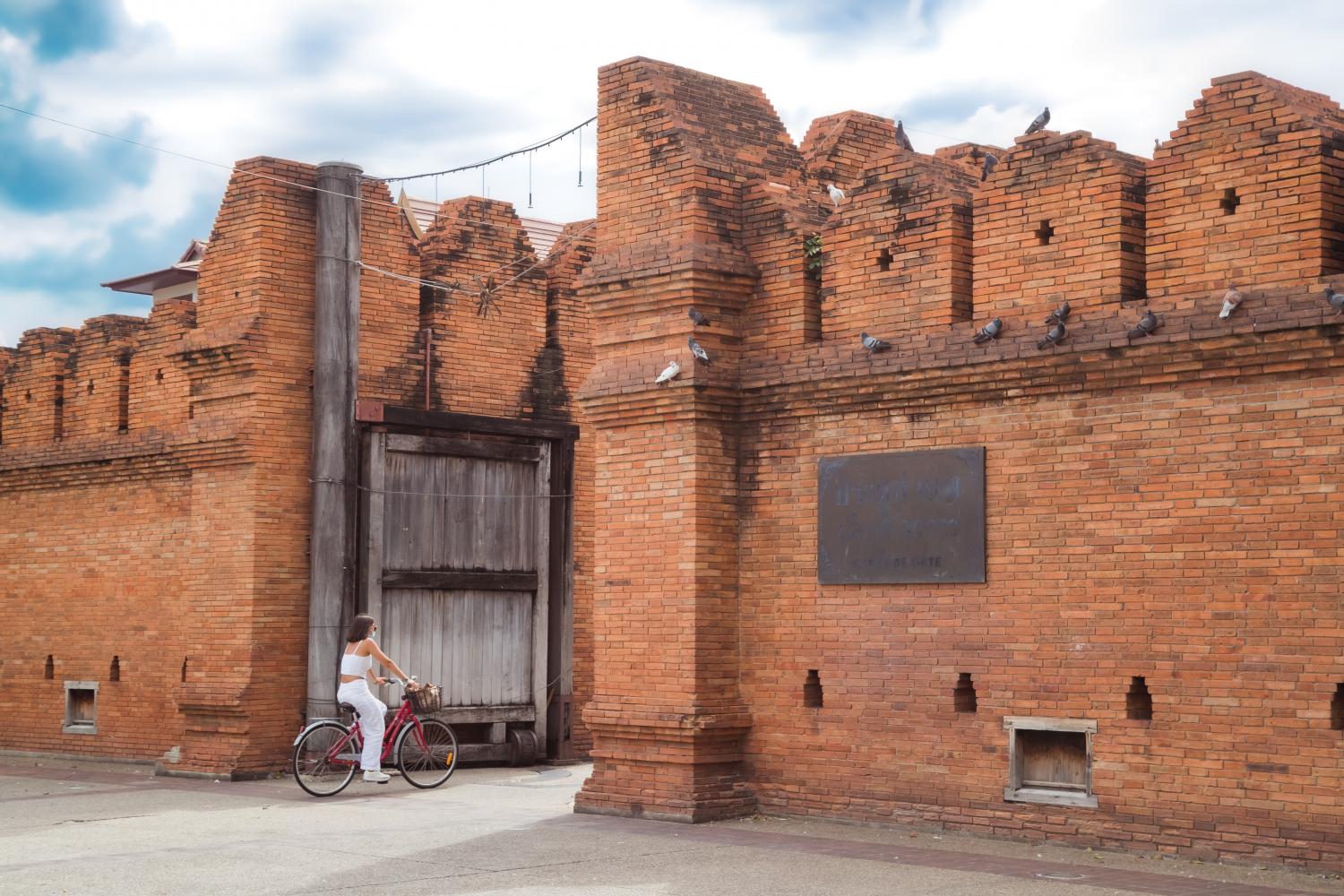
Tha Phae Gate in the old town of Chiang Mai. The city is popular among retirees.
OPTIMISM FOR THE EEC
Investment and the number of expats in the EEC have expanded quickly after the pandemic ended, said Krit Techasumma, managing director of Origin Nationwide, a developer focused on condominiums outside the Bangkok metropolitan area.
Mr Krit said the top businesses comprise EVs, biofuels and biochemicals, and electronics.
The EEC primarily attracts companies from Asia, led by Japan, China and South Korea.
Investment and staff relocation have bolstered the house rental market, including long-term contracts of 1-5 years and short-term rentals of 3-6 months.
Foreigners who work for companies in industrial estates account for 70% of Origin Nationwide's properties in Rayong and Si Racha, while the domestic market accounts for the remaining 30%.
The rental yield for both locations, such as Notting Hill Rayong and Hampton Sriracha, are estimated at 5-6%, he said.
In terms of occupancy rate, rental properties in Si Racha and Rayong tally 70-80% and 65-70%, respectively.
"Though the global slowdown could impact the real estate segment, the housing segment in the EEC remains resilient," said Mr Krit.
The GDP of the three EEC provinces is estimated at 4.7%, which is higher than the forecast for the whole country at 4%.
Given the new public infrastructure, including U-tapao airport, high-speed rail link and Laem Chabang Port, he is optimistic about steady growth.
Mr Krit said the government should continue attracting foreign investors and consider appropriate tax collection.
To lure more spending from expats and inbound tourists, new attractions should be developed in the EEC too, he said.
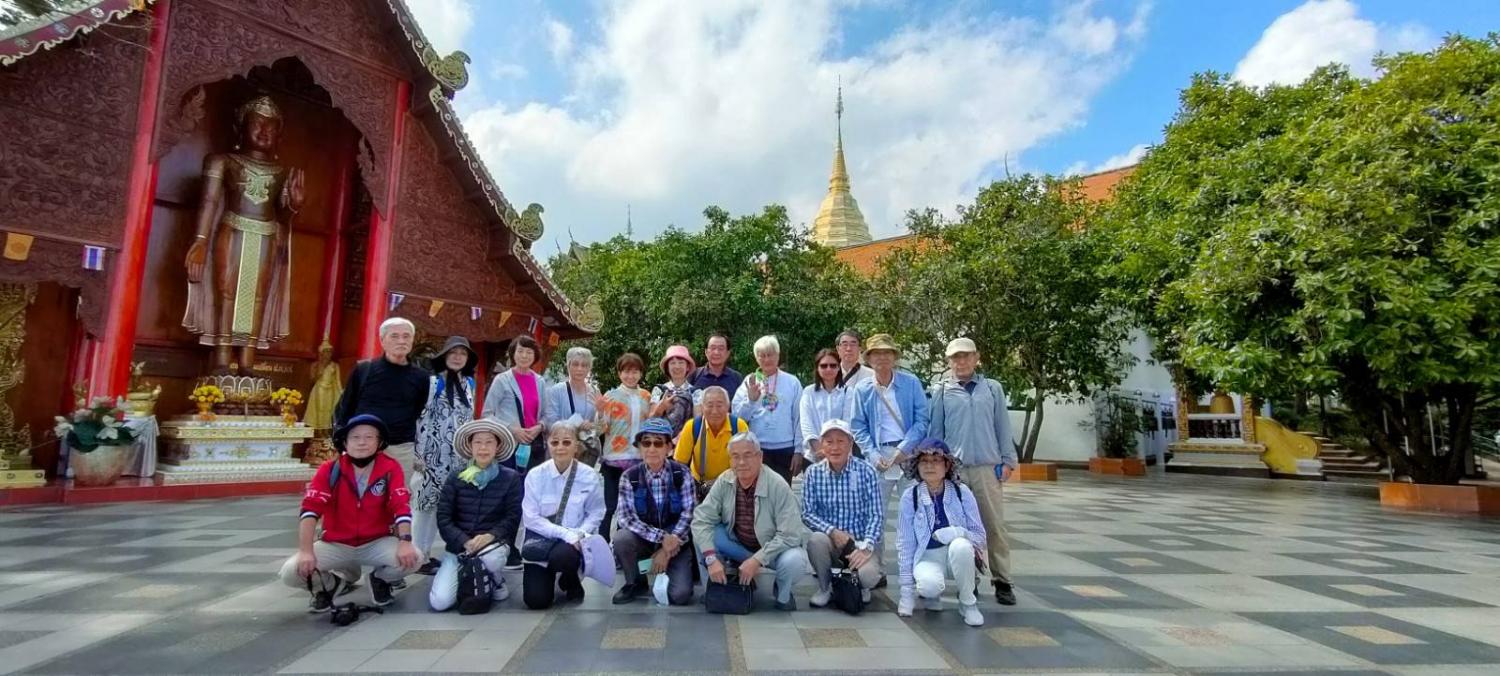
A group of Japanese retirees in Chiang Mai are members of the Chiang Mai Longstay Life Club.
CLOUDY CHIANG MAI
Over the past few years, PM2.5 smog has damaged the image of Chiang Mai, a well-known destination for foreign retirees, as the situation has worsened each year.
This year, the province -- famed as the "Rose of the North" -- was ranked the worst for air quality in the world.
Sumitoshi Nishida, 72, a Japanese retiree who has lived in Chiang Mai for more than a decade, said the pollution has slowed inbound travel for more than a month.
Mr Nishida is a member of the Chiang Mai Longstay Life Club, which has almost 80 members, mostly Japanese retirees.
He said some foreigners go back to their home countries for 1-2 months, then return after the smog has eased.
Mr Nishida said he believes Chiang Mai is still the best place to live because of its affordable living costs, warm climate, local culture and food, as well as quality hospitals and golf courses.
Moreover, the requirement for savings of 800,000 baht to apply for a retirement visa is not expensive compared with other retirement programmes in Asia, he said.
However, as the Japanese government raised the retirement age to 70, Thailand might see a decrease in Japanese retirees as elderly people may opt to spend the rest of their lives in their own country, said Mr Nishida.
He believes Thailand can still benefit from short-stay elderly tourists as they still want to take leisure trips, mostly for one or two months.
Most retired Japanese normally stay in Thailand as long as their health remains good, said Mr Nishida.
They return home when their health falters because Japanese health insurance does not cover treatment abroad, he said.
As a foreign retiree, Mr Nishida said he hopes the government works to solve problems related to traffic conditions and the quality of roads, sidewalks and zebra crossings, as Chiang Mai is among the worst cities in Thailand for traffic accidents.

Jing Jai Market, Chiang Mai. Mr Nishida said he believed Chiang Mai is still the best place to live, due to affordable living costs, warm climate, local culture and food.

Lamai Beach, Surat Thani. Surat Thani in Southern Thailand has served as a hotspot for digital nomads.
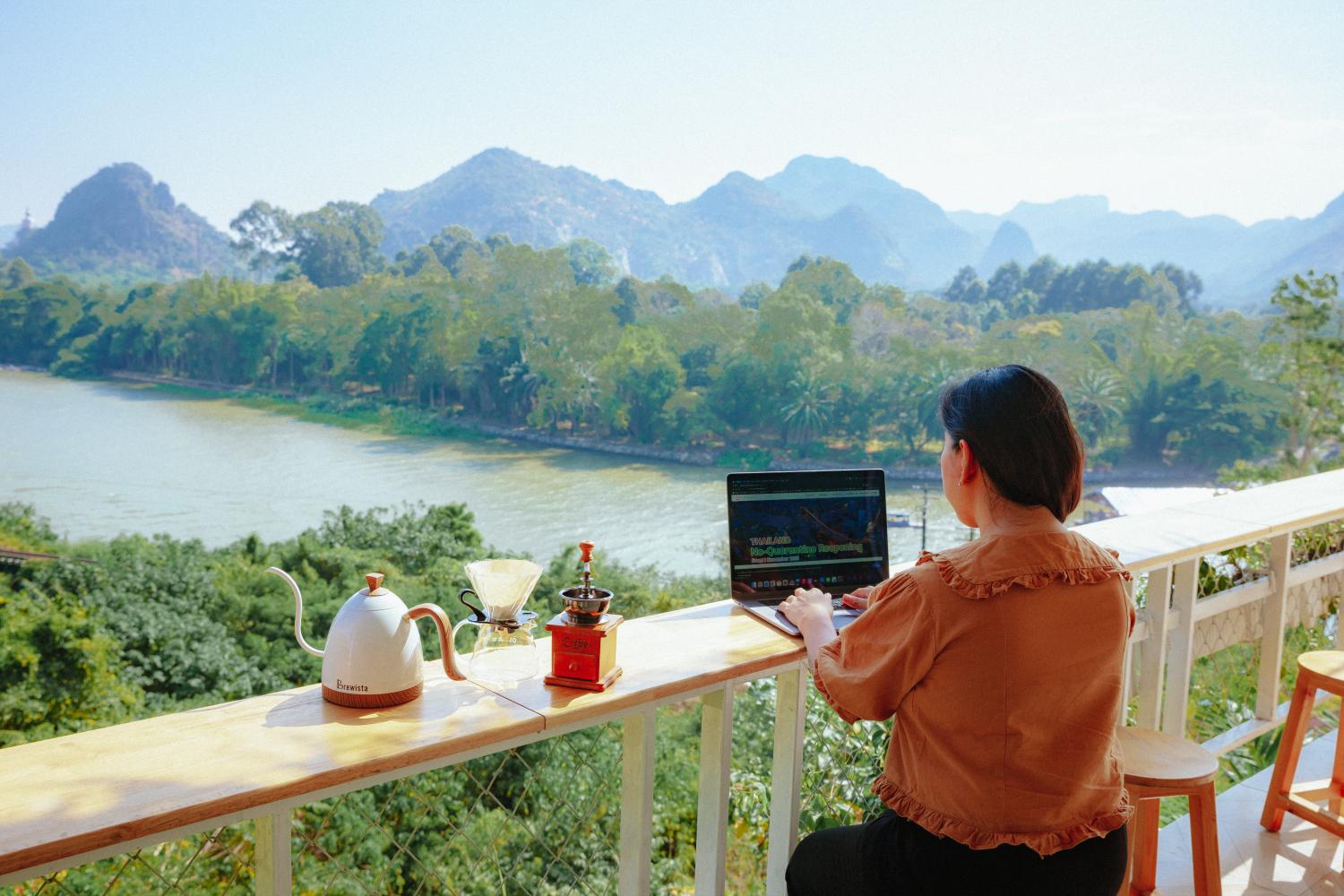
The Curve Cafe in Kanchanaburi. The number of cafes and co-working spaces are rapidly growing to accommodate steady growth of demand from long-stay and non-immigrant visa holders.
